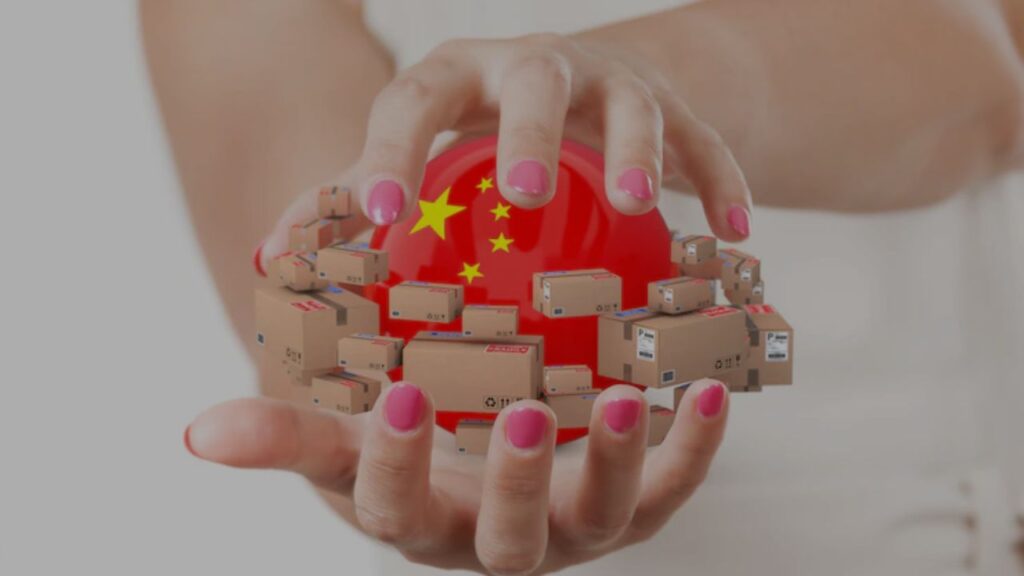China has become a sought-after sourcing location for companies all over the world. As the leading export country in the world, China exported over $3.3 trillion in 2021.
If you're into retailing and business, you know that China is the best market to source products from when it comes to convenience, low costs, and scalability.
This article will answer all questions about sourcing products from China and how to easily find suppliers and import goods through the sourcing service provider in China.
At the end of this simple sourcing-made guide, you will understand how to avoid the stress and challenges of sourcing products from China.
Why source products from China?
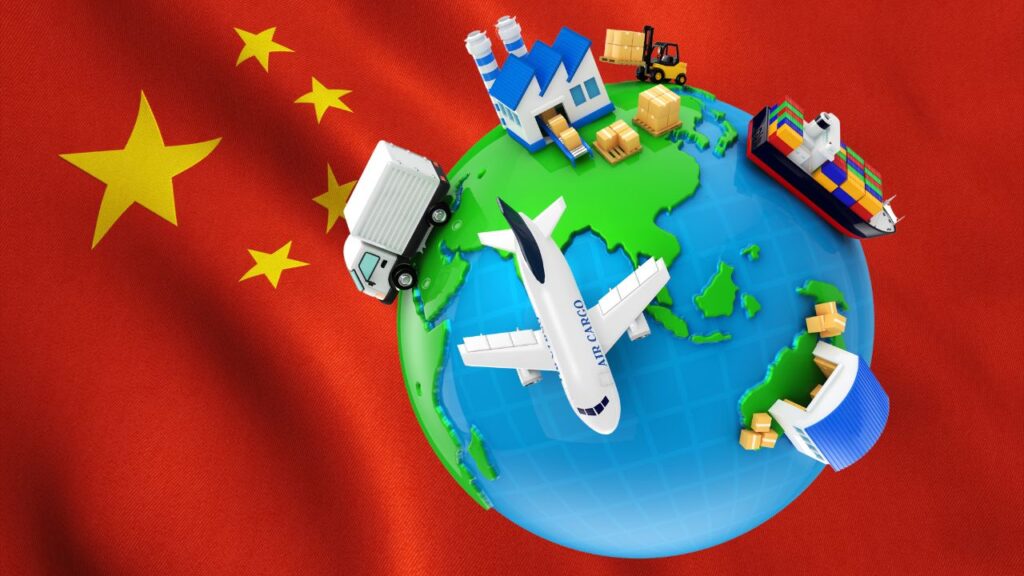
There are just so many reasons importers love sourcing products from China. Here are the biggest of them:
Expansive Supplier Base
China has a variety of industrial clusters, each with a sizable number of businesses concentrated in a specific region. Each industrial hub in China has numerous factories for different products at competitive prices. China's wide range of suppliers is one of the main reasons importers are keen to import from there.
As a result of this vast network of suppliers, thousands of businesses can import guided products easily. From textiles and apparel to sourcing electronics from China, automobiles, and consumer goods, numerous sourcing companies can produce almost any product. China is a suppliers' haven!
Lower Labor Cost
The lower labor cost is one of the most frequently cited explanations for why it is less expensive to manufacture goods in China. In the manufacturing industry, labor costs play a significant role in determining overall production costs.
Since China is the world's most populated country, finding skilled and unskilled local labor is effortless. This makes it possible for manufacturing companies to spend less on acquiring labor, greatly reducing manufacturing costs.
Additionally, several government initiatives enable manufacturers to guarantee excellent work standards without raising labor costs. Most workers have years of specialized training or experience in their specific fields.
Excellent Product Quality
Many people think Chinese products are fake and do not last long, but this is far from the truth. Many small and medium-sized businesses have already located suppliers with high-quality Chinese-made product options.
Most Chinese suppliers have years of practical manufacturing experience and are intimately familiar with the manufacturing process. Additionally, they know the best and most affordable places to buy high-quality raw materials and have the tools necessary to uphold a high-quality standard.
As a result of the highly competitive production landscape, many top manufacturers are eager to spend money on the right tools and technology to deliver high-quality products. In addition, you can hire a third-party quality control firm to ensure the product complies with your technical requirements and quality standards. This is one of the services we handle for you at DFH.
Manufacturers with a good reputation and industry knowledge are aware of this. They are, therefore, more than happy to cooperate with product quality checks at different stages of the manufacturing process.
Better Scaling Capabilities
One big reason many importers look to China for importation is the ability to scale up production upon short-time request. China has a strong, well-established infrastructure, and most Chinese manufacturers also have extensive experience and knowledge of the global supply chain. They can scale up production as and when it is needed, thanks to both of these factors.
For instance, in just a few days or weeks at most, suppliers can increase production for you from a few thousand to over a million.
Due to the significantly lower costs associated with MOQ, start-ups and small businesses can begin sourcing goods in small quantities.
There's always the opportunity to scale up with Chinese suppliers as your business expands. There is no better option than using Chinese manufacturing if you are a new business trying to build your brand.
Easy to Direct Sourcing
A great advantage that sourcing products from China offer many importers is direct access to manufacturers, no matter your country. This helps to reduce incidences of middlemen and rip-offs in the supply chain. Also, reducing middlemen interference helps to reduce unnecessary delays and increased costs.
Through online marketplaces, physically visiting various traders' markets in China, or with the aid of a freight forwarder, you can quickly establish contact with a reliable supplier or their representative agents at international trade fairs. Ensure you hire a reliable and experienced manufacturer with good ratings.
Sourcing products from China Options.
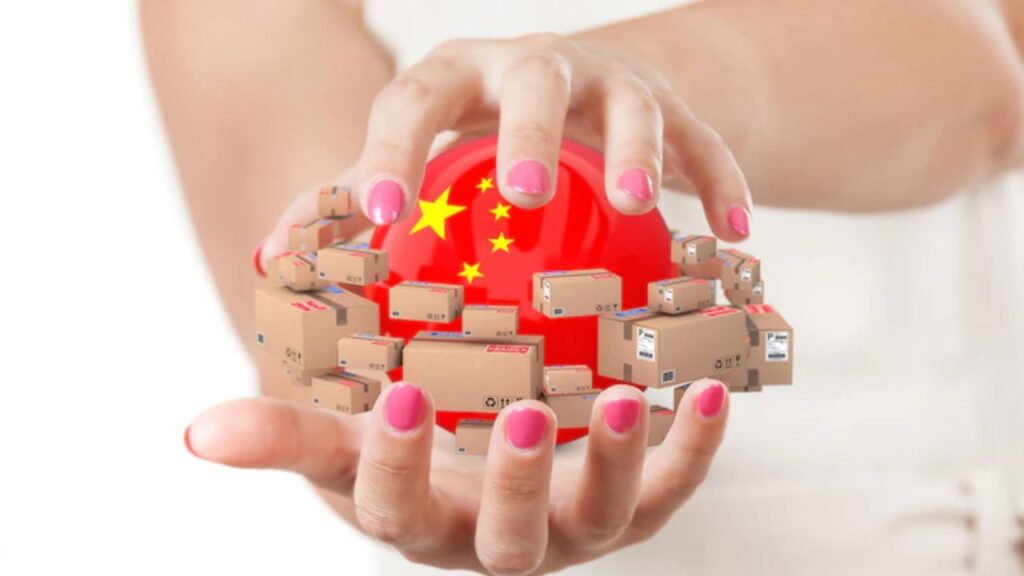
Buy Directly from China.
This is the ultimate goal of every importer, to have the capacity to order products directly from the Chinese manufacturer or supplier without an intermediary.
With this, importers can control the process and avoid high commissions requested by middlemen and other agents.
This might be your best option if you have the organizational capabilities to manage suppliers and meet the vendor's minimum order quantity (MOQ).
Because many importers start small, they cannot meet the MOQ of suppliers. Hence they need to go through agents or a trading company to purchase the capacity they require.
How do I find suppliers from China?

Many people looking to source goods from China typically start with a Google, Bing, or Yahoo search. You can also visit Chinese online marketplaces that link buyers and suppliers in China, like Alibaba, Global Sources, and Made in China.
If you already have a reliable freight forwarder, you can ask them to refer you to a trusted supplier.
Getting a supplier through referrals is one of the easiest and most reliable ways to find a Chinese supplier. After this, you verify suppliers and move on to negotiation and production.
Hire a Sourcing agent based in China

Thousands of China sourcing agents can directly link you to the supplies you need. While this service would cost some, importers can easily get access to suppliers immediately they need them, and it saves a lot of stress. Most sourcing agents have a strong network of reliable suppliers that importers could choose from to help them make guided imports. Team sourcing company ltd can help with team imports, providing easier ways of sourcing products from China.
The China sourcing company could also act as your representative in China by negotiating with the supplier on your behalf and helping to check the quality of your products.
Buying from trading companies.
Trading companies are basically like intermediary suppliers. They are suppliers of guided products, but they don't manufacture these goods themselves; instead, they buy from the manufacturers. As a result, trading companies usually offer lower MOQs for goods.
Trading companies are a perfect option for importers just starting in business. Although they are not as cheap as approaching the manufacturer directly, you can easily order small amounts from trading companies and ship whenever you're ready.
How to source products from China-Sourcing process guides
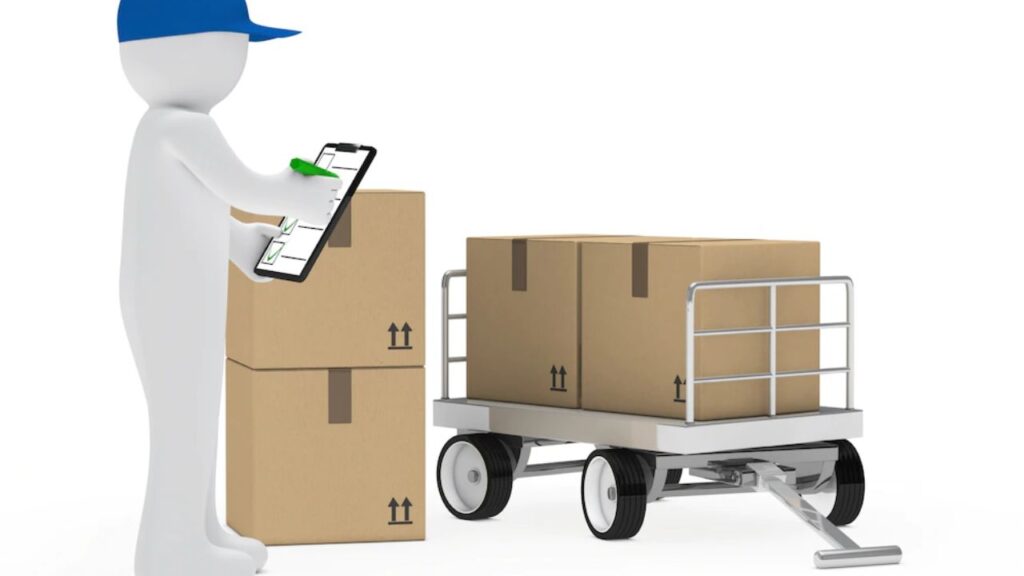
Do Market Researching
This is the first step in your importation process from China. You need to confirm what to import and do extensive research on its market viability. Fierce competition in the international marketplace makes it difficult to succeed in business if you enter a crowded space without adequate preparation.
You probably already know what products your business can provide. Make sure your products have the right market in your country so your business can record success. This can be achieved by determining the best-selling products, figuring out how much to import, and calculating the costs of manufacturing, marketing, and customer delivery.
Because of the increasing level of market competition, skipping this step is never a good option if you want to increase your earnings. It will take a lot of work to compete in the market and replace the current sellers. Since this is a business endeavor, you want to make sure that you can still turn a profit once expenses are deducted.
Check out the well-known Chinese marketplace Alibaba.com if you need assistance deciding where to begin your importation journey. There you'll discover the goods you want to purchase.
Contact with Suppliers.
This is where many importers get confused. For various reasons, some people don't like getting in touch with manufacturers, mostly because they are confused about how to go about it. After you know the product you want to order, the natural next step is to search for suppliers that sell what you want and can offer the quantity you need at the least expensive prices.
You'll have to contact different sellers to compare their prices, reviews, and other offerings. You also need to verify suppliers to ensure what you get from them. You can then select the most favorable among them for negotiation.
Where to source products?
Finding the products you want to buy is a fairly simple process; you must visit online China wholesale websites like Alibaba (a vast marketplace network connecting you with hundreds of thousands of capable manufacturers from China). After that, you should message at least 10-15 suppliers since you have nothing to lose.
You can speak with them briefly, discuss various requirements, and benefit from their knowledge.
After this, go on to choose the manufacturer you believe will best meet all of your requirements and begin working with them. It's that simple.
Negotiate Prices with suppliers
Negotiation is one of the most important aspects of buying goods from China. In addition to discussing price, the negotiations also cover the length of the transaction, the quality of the product, the terms of the agreement, and the nature of your business relationship. In China, bargaining about the price, quality, quantity, product specifications, and delivery time of goods is perfectly normal.
Make sure you know the price at which your product is sold before negotiating with a supplier. In most cases, when you compile a list of suppliers based on your research, you will be aware of the current selling rate. Even if you've found potential suppliers, you believe in having a reasonable price and visit a few different factories. You can bargain with the other factory using the quotes one of the factories has provided.
Below are some important questions to ask when negotiating with your supplier:
Minimum order quantities (MOQs)- Most Chinese manufacturers have high MOQ requirements. While the price gets cheaper the more orders you place, sometimes you might have a much smaller capacity than what is available. Always double-check with the supplier to ensure accuracy, even if the website has already listed the MOQ. Sometimes, suppliers allow negotiation on the minimum order quantities they allow if you have a smaller budget in mind.
Asking for samples- It is always important to request samples beforehand to be sure manufacturers can create the exact product you desire and meet product specifications. You can, however, negotiate with suppliers and enquire if they offer sampling before bulk orders.
Keep in mind that most Chinese suppliers receive numerous emails requesting samples. Most people that request these samples do not even have the money to buy larger orders from the suppliers.
Factories frequently offer low prices, so they can profit more if you place orders for many items. The bigger the project, the bigger they earn. During negotiation, you must convey that you have a big plan to order after seeing samples.
Some Chinese manufacturers may even provide you samples for free if they know you have a large order incoming.
Duration of production and Manufacturing costs- One important thing to negotiate is the time it will take for the production process and the manufacturers to get your goods ready. You should also discuss the production cost per unit to see if you can ask for a bulk discount on prices.
Rather than haggling and getting stuck over price negotiations, you can ask for discounts in other areas, like reducing prices for larger orders, getting a discount if you pay upfront, or placing multiple orders.
You may have a better deal overall if you focus on the other details during the negotiation than just the price. Another reason to avoid focusing too much on price is that it could have negative effects elsewhere, like the supplier using insufficient packaging or less expensive materials for your order.
Payment terms- Chinese suppliers support many payment options. However, the most low-risk of these options for buyers are PayPal and escrow services. Many suppliers do not like using PayPal except for low-quantity orders. Also, most suppliers would demand the full price to be paid upfront before processing the orders. It is essential to agree on a payment method and how much to pay initially before confirming orders with any supplier.
When negotiating with potential suppliers, remember to be very respectful and reasonable.
Selecting and making decisions about the right suppliers

After negotiating all the above with the suppliers, you can proceed if they agree to favorable terms. This way, you'll know exactly what to expect. Both the buyer and supplier should be on the same page with this before proceeding with the order.
If uncomfortable with any supplier, don't hesitate to pull the plug and walk away. You can also request another China sourcing agent or use a trading company.
Place samples orders to do a test
Now that you're ready to request samples, you can choose the best price out of all of the quotes from the manufacturers and place your first round of orders. Agree on location and payment method, then order your products and wait for them to arrive.
You must inspect at least five to ten units from your initial order to check for flaws, defects, and quality levels. Then check the entire delivery for damaged products. You can ask the factory for replacements if you don't feel satisfied, or you can look for other factories. This is why it's important to order samples first.
Place Bulk orders with suppliers
After following all the above steps, if you're pleased with the result, the next step is to place a bulk order from the supplier. Watch out for the payment methods to avoid being scammed.
Hire a China Freight forwarder.
No matter how much shipping experience you think you have, always use a freight forwarder to ship your goods. Freight forwarders have the requisite experience in shipping and logistics to make your entire importation process easy.
It's always advisable to work with reliable freight forwarders like DFH to guarantee a smooth shipping process and the security of your goods.
DFH has:
A solid reputation as one of the best freight forwarding companies in China
Necessary business license
Numerous positive reviews,
Over a decade-long track record for providing shipping solutions
A strong network of suppliers and customs brokers in every country you order from
DFH has offices around mainland China to make it easy to pick up your goods from the suppliers, and we can help you store and repackage your goods before shipping. Contact DFH to get a quote today.
Quality control Inspections before shipping.
A strong production agreement is a great way to begin your supplier relationship. Still, routine quality control inspections are necessary to ensure that the products' quality meets your standards. This helps to avoid costly mistakes in the future because it is easier to correct problems early than after they have been shipped.
DFH can help handle quality inspection services during the production stage and monitor the entire quality control process, ensuring they meet up to your required standard. It's yet another way DFH supports you every step of the way.
International Shipping: Air freight, Ocean Freight, Rail Freight
Another important step in importation is arranging the mode of shipping. The first thing you need to do at this point is to become familiar with shipping incoterms. Incoterms are international trade terms used to specify where and when the cargo will be transferred and who bears responsibility for the goods.
For example, in a DDP incoterm, your supplier or freight forwarder helps handle every aspect of shipping till the goods reach your doorstep. In contrast, in an EXW incoterm, you arrange for the goods to be picked up and sort out the total shipping yourself.
Usually, there are 4 major ways to ship from China: Express shipping, air freight, ocean freight, and Rail freight (China to European countries).
Express shipping is the fastest and most expensive mode, and ocean freight is the slowest and cheapest method. Rail freight is a middle ground between ocean and air freight- cheaper than air freight shipping and faster than ocean freight shipping.
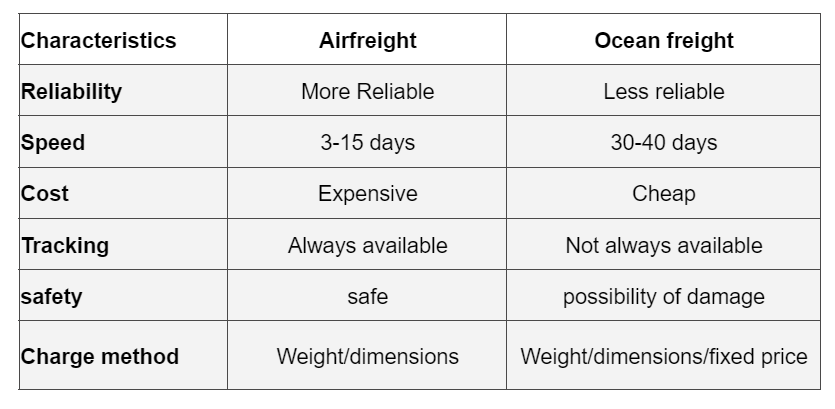
Common mistakes for beginners when sourcing from China

Not having a good sourcing strategy.
An effective sourcing plan is crucial when sourcing products from China. A sourcing strategy guides choosing the best product supplier and includes details about your products, delivery time, and expected quality level. This helps to avoid future complications.
Doing business with overseas suppliers and sending them large sums of money can be risky. So it will be helpful if you have a plan with well-defined goals to reduce risk. A China sourcing agent company can help with this.
Price, product quality, and functionality must all be understood clearly because these three factors should make up the core values of your strategy. You can also consider taking insurance to ensure the safety of your products, and DFH can handle insurance for you.
Not ordering samples before bulk order.
You should examine product samples before signing any contract with a supplier to ensure you're getting the accuracy and quality you paid for. It is a good way to judge your supplier's ability to understand and meet your specifications.
If you need revisions, you can identify them through the samples and point out areas for improvement.
However, it's crucial to remember that some vendors will provide a "golden sample" to earn your business. For this reason, cooperating with companies like DFH to help handle quality control inspections is very important.
No analysis and audit of suppliers.
You should always evaluate the supplier's factory conditions before making orders. You can choose to go there yourself or hire a third-party auditor.
The best way to assess a manufacturer's competence is through a face-to-face meeting at the factory. It provides the retailer with a thorough understanding of a supplier's operation, including information on everything from the quality of the raw materials, production capacity, and working conditions to how the workers are treated.
To establish a long-lasting business relationship with your supplier, a personal visit is a great way to know them better personally.
An audit will help you determine whether the potential supplier can meet up to your standards.
Focusing on price only.
Although reliable Chinese manufacturers offer huge profit margins, cost should not be the only consideration when negotiating. Focusing on underpricing suppliers isn't the best strategy if a retailer wants to keep good relations with its manufacturing partners. If the costs are too low, the supplier may be tempted to use defective products, affecting the products' quality. In the end, if the price seems good to be true, it probably is.
Not Hiring a freight forwarder.
Negotiating and doing business with Chinese suppliers successfully can be challenging, especially if you're new to importing from China. While Freight forwarders have a good network of trusted suppliers, you can use them to ensure the best deals and less stressful negotiations. Contact us to get started. Meanwhile, Reliable and experienced Freight forwarders can help you save much in the shipping area and free your hands to focus only on your business growth.
Conclusion
Sourcing goods from China doesn't need to be difficult if you know the right steps and the best way to go about it. Contact DFH today to get started on your importation process.
FAQs of Sourcing from China
How do you source Chinese manufacturers?
Many people looking to source goods from China typically start with a Google, Bing, or Yahoo search. You can also visit Chinese online marketplaces that link buyers and suppliers in China, like Alibaba, Global Sources, and Made in China. You can also ask your freight forwarders or other businesses to refer you to trusted manufacturers.
How do you source products directly from China?
When sourcing products from China, you need to do market research, find suppliers, and negotiate with them about the peculiar requirements for your products. Then you can complete payment and arrange to ship your goods.
Where can I get the wholesale product from China?
You can get wholesale products directly from Chinese manufacturers on Alibaba or other marketplaces.
Who can help me source in China?
Sourcing agents, trading companies, and service companies from China can help you source goods. Some Freight forwarders or shipping agents can also help to source in China because they have an expansive supplier base and communicate with different suppliers from China for different products every day.

